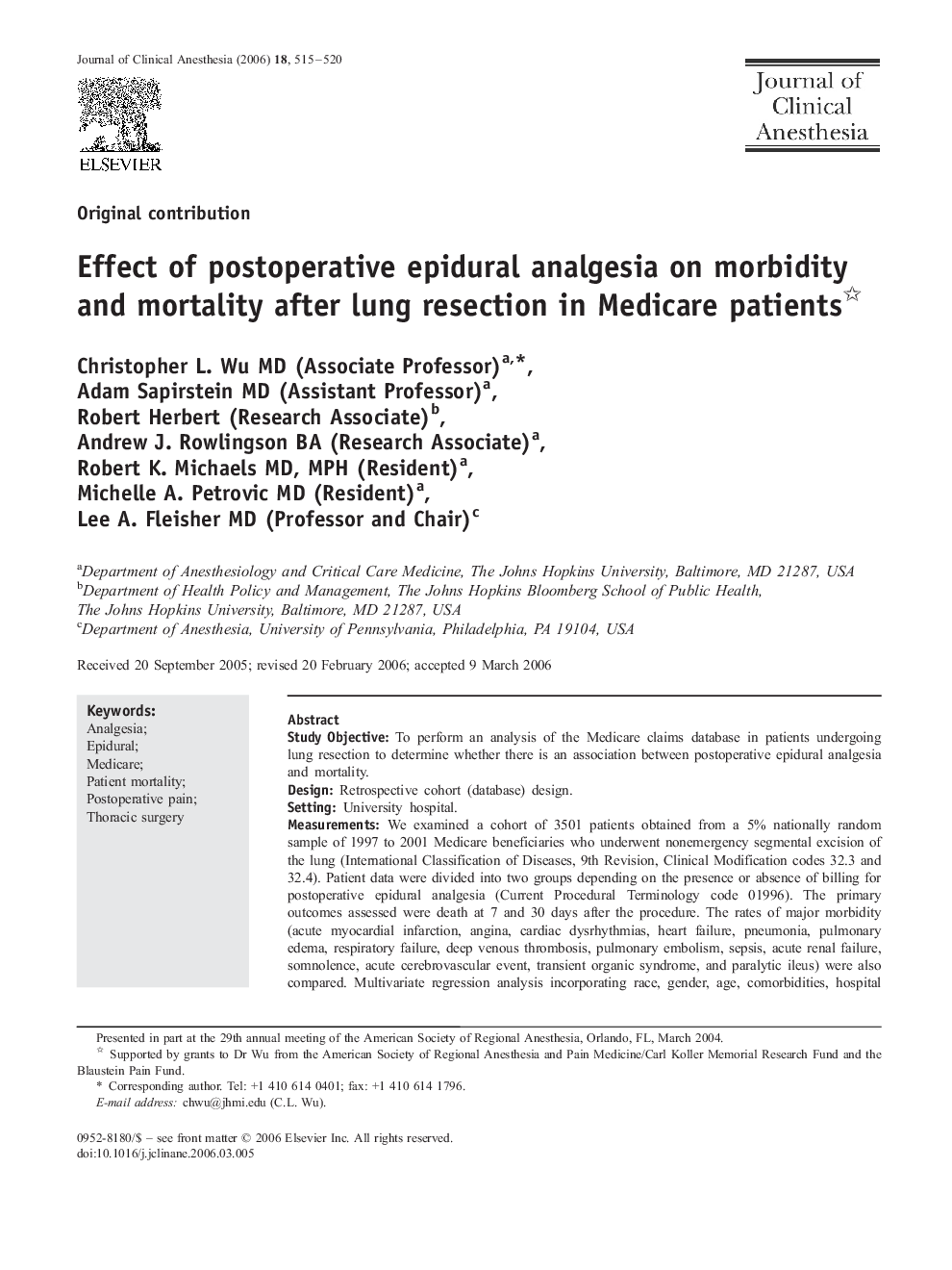| Article ID | Journal | Published Year | Pages | File Type |
|---|---|---|---|---|
| 2763738 | Journal of Clinical Anesthesia | 2006 | 6 Pages |
Study ObjectiveTo perform an analysis of the Medicare claims database in patients undergoing lung resection to determine whether there is an association between postoperative epidural analgesia and mortality.DesignRetrospective cohort (database) design.SettingUniversity hospital.MeasurementsWe examined a cohort of 3501 patients obtained from a 5% nationally random sample of 1997 to 2001 Medicare beneficiaries who underwent nonemergency segmental excision of the lung (International Classification of Diseases, 9th Revision, Clinical Modification codes 32.3 and 32.4). Patient data were divided into two groups depending on the presence or absence of billing for postoperative epidural analgesia (Current Procedural Terminology code 01996). The primary outcomes assessed were death at 7 and 30 days after the procedure. The rates of major morbidity (acute myocardial infarction, angina, cardiac dysrhythmias, heart failure, pneumonia, pulmonary edema, respiratory failure, deep venous thrombosis, pulmonary embolism, sepsis, acute renal failure, somnolence, acute cerebrovascular event, transient organic syndrome, and paralytic ileus) were also compared. Multivariate regression analysis incorporating race, gender, age, comorbidities, hospital size, hospital teaching status, and hospital technology status was performed to determine whether the presence of postoperative epidural analgesia had an independent effect on mortality or major morbidity.Main ResultsMultivariate regression analysis showed that the presence of epidural analgesia was associated with a significantly lower odds of death at 7 days (odds ratio, 0.39; 95% confidence interval, 0.19-0.80; P = 0.001) and 30 days (odds ratio, 0.53; 95% confidence interval, 0.35-0.78; P = 0.002) after surgery. There was no difference between the groups with regard to overall major morbidity.ConclusionsPostoperative epidural analgesia may contribute to lower odds of death after segmental excision of the lung, although the mechanism of such a benefit is not clear from our analysis.
